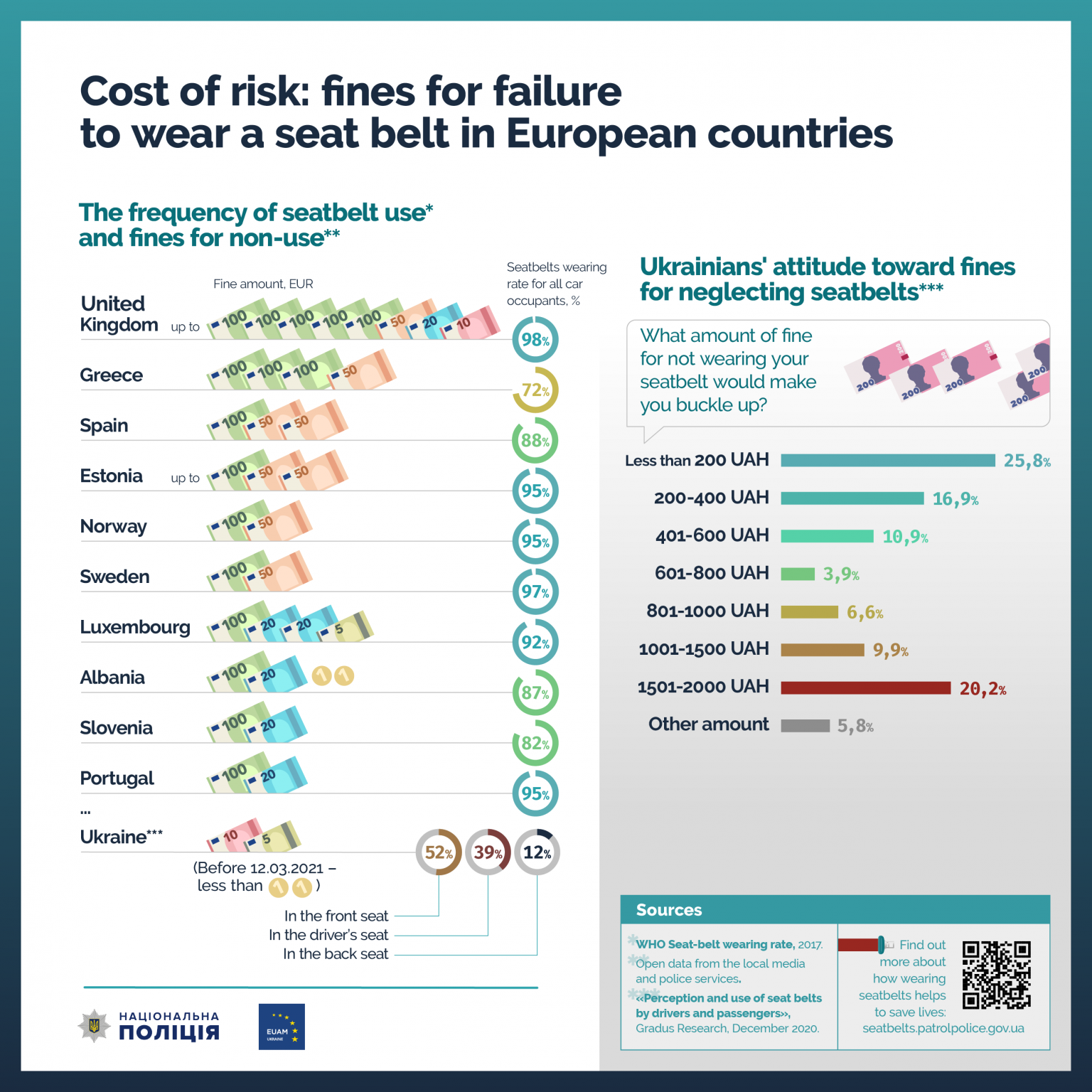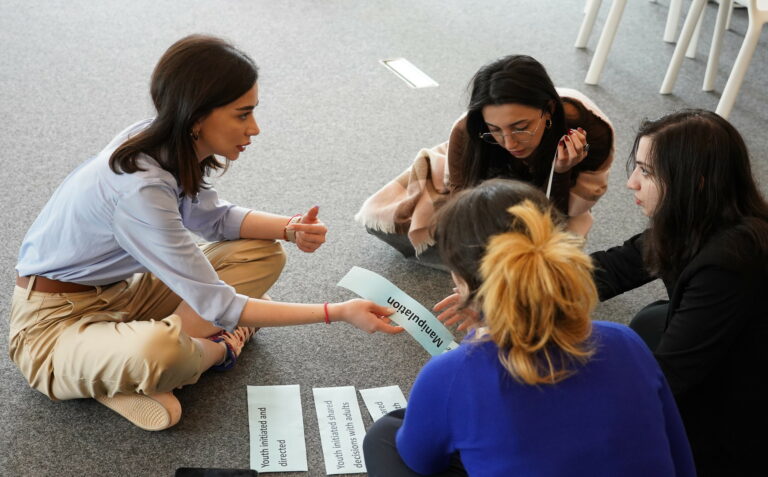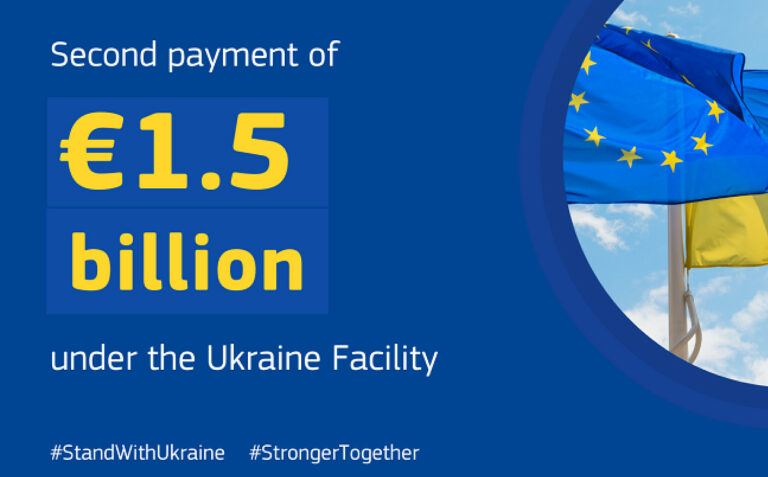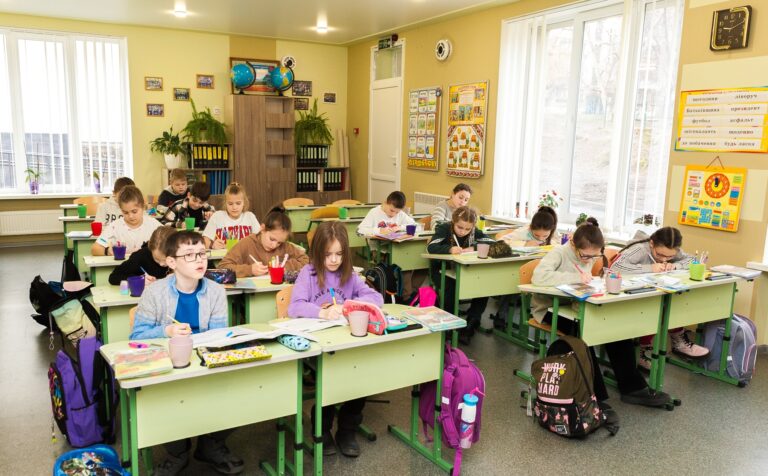
Survey: over 50% of Ukrainians say higher fines can make them use seatbelts
Over a half of Ukrainians (53.6%) say that a fine of 600 hryvnia is enough to make them buckle up, according to a survey on ‘Perception and use of seatbelts by car drivers and passengers’, held in Kyiv, Mariupol, Kharkiv, Odesa, and Lviv. The survey was conducted by the National Police of Ukraine (NPU) and the European Union Advisory Mission Ukraine (EUAM Ukraine), as part of the ‘Buckle Up – Don’t Get Terrified’ road traffic safety campaign.
For 30% of respondents, only fines over 1,000 hryvnia would motivate them to care about their safety while riding in the car. A third of these (10%) would change habits if the fine was between 1,000-1,500 hryvnia, and the remaining 20% – if they were forced to pay 1,500-2,000 hryvnia.

In the same survey, 82% of respondents said they buckled up occasionally in the front seat, and only 52% always did so during every ride. The most severe negligence was among the back-seat passengers: only 12% have made it their habit to fasten their seatbelts every time.
Since 13 March 2021, fines for failing to use seatbelts have increased tenfold (to 510 hryvnia – just over €15) in an effort to increase the share of drivers and passengers buckling up every time they ride.
As part of its ‘Buckle Up – Don’t Get Terrified’ campaign, which will last until the mid-May, NPU will use popular horror film tropes, install collision simulators in accident-themed demo zones open to the public, and guide and offer advice to motorists on the road and in shopping mall parkings.
Find out more
MOST READ
SEE ALSO

EU4Youth Alumni Network hosts IdeaLab in Tbilisi

EU4Youth IV: Strategy of the All-Ukrainian Youth Center presented in Kyiv

European Commission disburses additional €1.5 billion in bridge financing to Ukraine

EU4DigitalUA: EU presents results of project supporting Ukraine’s digital transformation

Kamianske school in Ukraine reopens after EIB-supported reconstruction
More campaign pages:
Interested in the latest news and opportunities?
This website is managed by the EU-funded Regional Communication Programme for the Eastern Neighbourhood ('EU NEIGHBOURS east’), which complements and supports the communication of the Delegations of the European Union in the Eastern partner countries, and works under the guidance of the European Commission’s Directorate-General for Neighbourhood Policy and Enlargement Negotiations, and the European External Action Service. EU NEIGHBOURS east is implemented by a GOPA PACE-led consortium. It is part of the larger Neighbourhood Communication Programme (2020-2024) for the EU's Eastern and Southern Neighbourhood, which also includes 'EU NEIGHBOURS south’ project that runs the EU Neighbours portal.

The information on this site is subject to a Disclaimer and Protection of personal data. © European Union,







